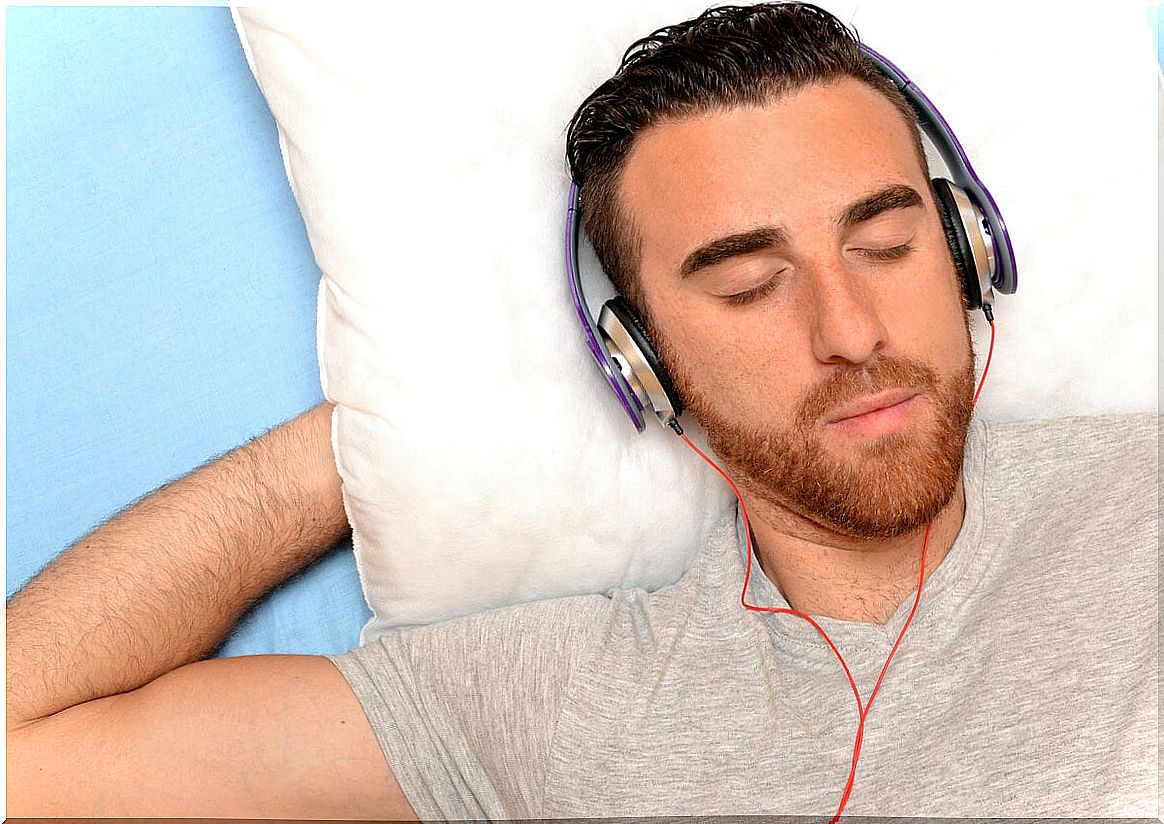Sleeping With Background Sounds: Why Do We Do It And How Does It Affect Us?

Environmental conditions have a great influence on the quality of sleep. Silence, darkness, a good temperature, etc., all these parameters guarantee that we are able to fall asleep and enjoy a deep and long rest. However, many people need to sleep with background sounds on a daily basis. Why does this paradoxical situation occur? We try to answer it below.
You probably know someone who is used to going to bed with the television on, the radio on, or an internet video or podcast. You may even be one of these people.
The most curious thing is that, far from being a mere whim or hobby, for many, sleeping with background sounds has become a real necessity. There are those who are not able to fall asleep without this sound company. But, how is it possible that an element that disturbs sleep is essential to us every night?
Why do we need to sleep with background sounds?
For years, many parents have not allowed or satisfied their children’s desire for a television in their bedroom. And this is because they knew or intuited the negative effects of overexposure to light when falling asleep.
Fortunately or unfortunately, technology has been gaining ground in our lives and more and more people are making a gap in their night hours. Thus, from this seemingly harmless decision, habit and even dependence on screens at bedtime can arise.

Has become a habit
Many have made it a habit to sleep with the television, tablet or mobile on. Human beings are animals of habit and we tend to repeat the same patterns of action every day, especially if they bring us some kind of immediate benefit.
Thus, many have transferred to bed what they used to do in another instance of the house: watching a movie or a series before going to sleep.
Helps camouflage other types of noises
One of the apparent advantages of sleeping with background sounds is that they help us to camouflage other types of environmental noises. Traffic, construction sites, the sounds of nature or the snoring of the bed partner seem to be diluted between the conversations that come from our television or our smartphone.
And it is that especially those who live in busy places and have night hours can find it difficult to fall asleep with this type of sound interruptions.
Fill the silence
On the contrary, other people use these sounds to fill the silence that reigns in the bedroom before going to sleep. Indeed, many people find this lack of sound uncomfortable and disturbing.
In these conditions, there are people who can feel fear or loneliness and the virtual company that technology offers can help them to appease these unpleasant sensations.
Disconnect the mind
This is one of the reasons most clearly identified by those who choose to sleep with background sounds. And it is that technology provides a mental distraction that prevents unwanted thoughts, worries and memories from arising.
One of the main causes of insomnia is rumination: the tendency to think excessively about what worries us. Thus, while we listen to the dialogue of our favorite program, we keep our inquisitive mind at bay.

What effect does sleeping with background sounds have?
Some studies have found that certain types of sounds, such as white noise, can promote sleep (especially in babies). However, the sounds that we usually use every night do not have these beneficial properties, but are irregular and can startle us.
Thus, these types of sounds generate a fragmented and shallow sleep that prevents physical and mental recovery processes from taking place. As a consequence, we can suffer from fatigue, stress, daytime sleepiness, worse performance and alterations in mood.
In view of these data, it is best to keep technology away from the bedroom if we want to guarantee a good rest. However, if we are unable to do so, at least certain measures must be taken that can mitigate the negative effects of this practice.
For example, set a timer that makes your TV or smartphone turn off at a certain time (so they won’t disturb your sleep throughout the night). It is also important that you choose content that is calm, that does not contain frights and that deals with positive themes (remember that dreams can be influenced by what we hear).
In short, sleep is one of the physiological processes most necessary for our health and well-being. Therefore, make sure that it is adequate in quantity and quality.









